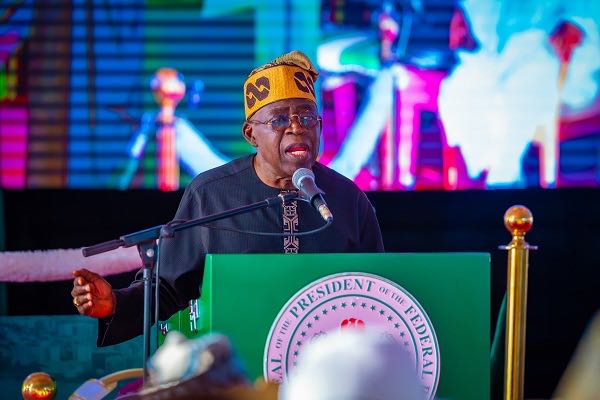
Engaging with SOLOMON ODENIYI, Damilare Adenola, Director of Mobilisation for the Take It Back Movement, delves into the policies of the current administration, the disregard for citizens’ demands, and their resolute commitment to achieving change through nationwide protests.
What are your thoughts on the President’s recent address amidst ongoing protests against governance issues?
President Tinubu’s speech reflects a desperate bid to retain power and stifle dissenting voices. His rhetoric lacks substance, his pledges ring hollow, and his threats hold little weight. We stand unwavering in our quest for justice, equality, and freedom despite attempts to intimidate us. The revolution persists, and we shall rise until systemic overhaul births a new Nigeria.
You mentioned extending the protests beyond the initial 10 days if demands are unmet. Will you uphold this stance?
Our demands encompass the immediate reinstatement of subsidies to alleviate hardships such as high food and transportation costs. We advocate for a dignified living wage, starting at N250,000, for Nigerian workers who sustain the economy through their toil. We call for a constitutional reboot that prioritizes people’s interests, inclusive of all Nigerians in a transparent conference and subsequent referendum. Additionally, we propose merging the Senate and the House of Representatives to check excessive spending and ensure lawmakers’ accountability.
Do you agree with the DSS labeling the protests as politically motivated?
Yes, protests are a constitutionally sanctioned political instrument for public discourse with elected representatives.
Despite recent government policy changes to ease citizen’s lives, why proceed with the protests?
President Tinubu’s belated actions aimed to dissuade dissenters only exposed official apathy towards citizen welfare. If leaders had the means to ease lives but chose not to until public outcry, it underscores their detachment from the people and the imperative to end governance malpractice.
How have security agencies’ warnings impacted protest attendance?
The police, not the military or DSS, are entrusted with safeguarding protesters. Militarization of demonstrations violates the constitution, exemplifying the leadership’s hypocrisy in suppressing peaceful dissent, contradicting President Tinubu’s past protestor persona.
Your views on recent arrests of protest organizers and freezing of accounts by the DSS?
These acts reflect government tactics to stifle dissent, but Nigerians resist oppression and are steadfast in their protest. Severe hunger and neglected grievances propel citizens onto the streets, irrepressible in their demand for change.
How did the Lagos State Government’s protest venue restrictions affect the planned protests?
Court-ordered restrictions violate citizens’ right to assemble freely, constituting a democracy threat warranting judicial challenge to safeguard democratic principles. No constitutional provision confines protests to designated venues.
How did the impenetrable Eagle Square in Abuja impact the protests?
Heightened security presence across the nation notwithstanding, attempts to deter peaceful protestors through intimidation are futile. Nigerians assert their constitutional right to protest against governance failures undeterred by such displays of force.
